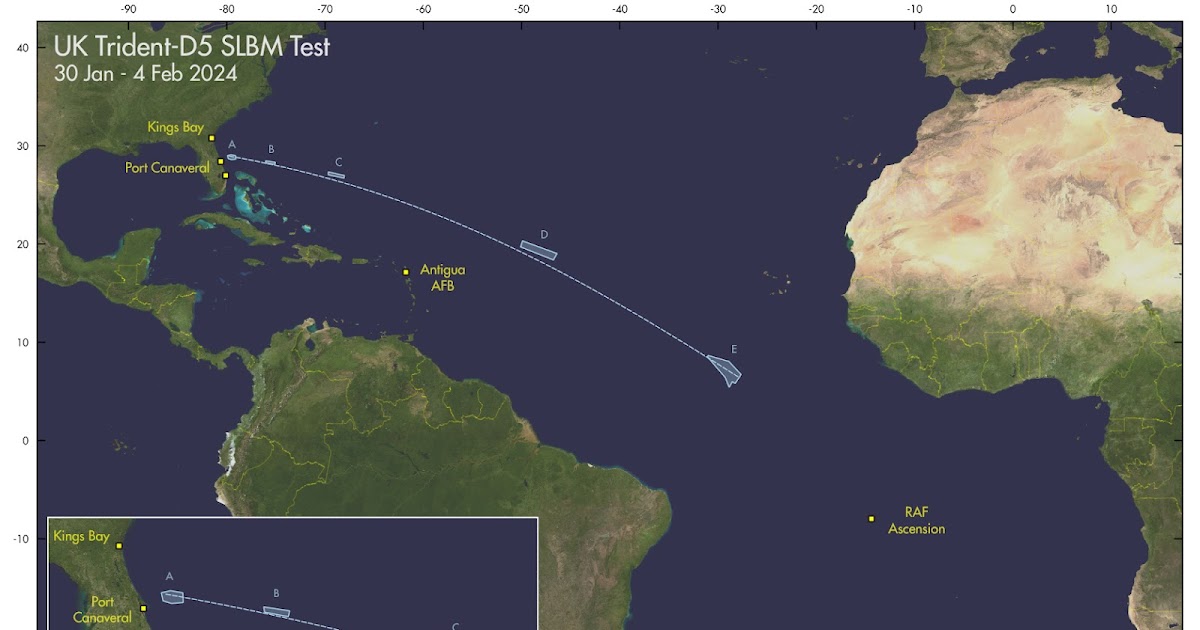It probably generated a lot of Stiff Upper Lip and an “Ow well, that is regrettable Old Boy….” from the UK Defense Secretary and the UK Royal Navy Commander that were on scene to witness the test.For British media (e.g. The Sun here and the BBC here) report that the 30 January Trident-II D5 SLBM test launch from the British Royal Navy submarine HMS Vanguard, on which I wrote earlier here, failed.From the description of the failure by The Sun, the suggestion is that the first stage failed to ignite after ejection of the missile from the submarine. As a result, it fell back into sea close to the submarine.A previous British Royal Navy Trident test launch, in 2016, failed as well when the missile veered into the wrong direction after launch and had to be destroyed in flight.In general, the Trident-II D5 is a reliable missile. The US Navy test-fires Trident SLBM’s frequently, and most of their tests reportedly were successful. It just seems the British have bad luck lately.UPDATE: Statement by the UK Ministry of Defense to UK Parliament on the matter.
January UK Trident-II D5 SLBM test failed
